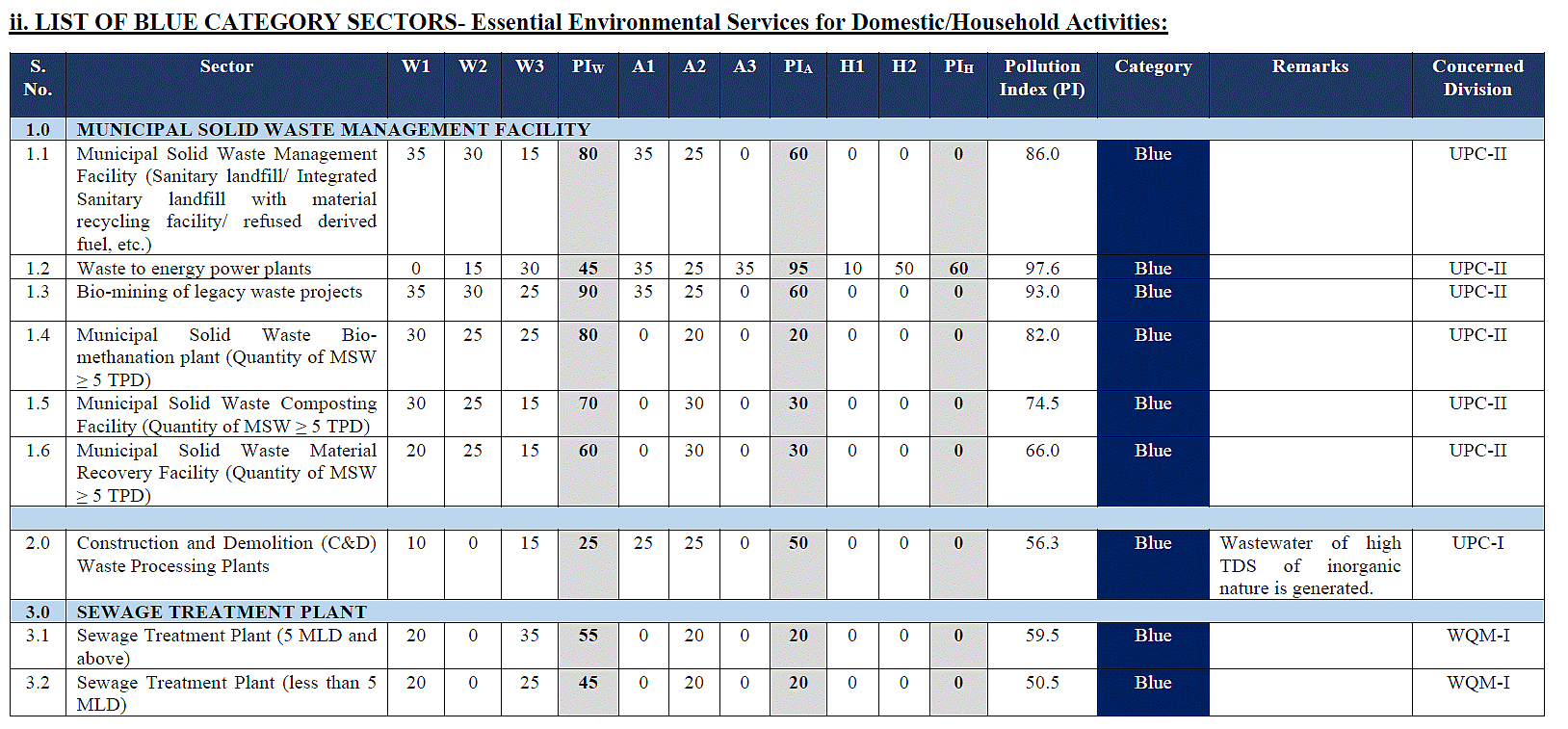Blue Washing of Polluting Industries

- 12 Apr 2025
In News:
- The Central Pollution Control Board (CPCB) has recently introduced a new ‘Blue Category’ for industries under its Essential Environmental Services (EES) framework.
- Notably, Waste-to-Energy (WTE) incineration plants, previously classified as highly polluting ‘Red Category’ industries, have now been controversially reclassified under this new category.
Background: Pollution Index (PI) and Industry Categorisation
- The Ministry of Environment, Forest and Climate Change (MoEFCC) classifies industries into categories — White, Green, Orange, and Red — based on a Pollution Index (PI) (0–100 scale).
- White (0–20): Least polluting
- Green (21–40)
- Orange (41–59)
- Red (60–100): Most polluting
- WTE plants, with a PI of 97.6, were originally in the Red Category.
What is the new Blue Category?
- Created under Essential Environmental Services (EES) classification.
- Grants 2 additional years of “Consent to Operate” (essentially, consent to pollute).
- Aims to support infrastructure like composting units, biogas plants, material recovery facilities, etc
Controversy: WTE Incineration in the Blue Category
- WTE plants burn unsegregated municipal solid waste (MSW) to generate electricity by producing steam to drive turbines.
- Unlike claimed benefits, WTE plants emit more CO? per unit of electricity than coal-fired plants, contributing to climate change.
- CPCB’s inspection reports found that Delhi’s WTE plants exceeded emission norms, releasing carcinogens and other pollutants such as:
- SOx, NOx, HCL, PM, Dioxins, and Furans
- In FY 2022–23, Delhi’s WTE plants incinerated ~735,840 tons of plastic, contributing significantly to Delhi’s poor air quality.
- These plants also generate hazardous ash, requiring secure landfill disposal.
Issues with Reclassification
- The CPCB’s own guidelines state that:
- Only projects that do not emit hazardous waste or
- Projects that promote the circular economy can be blue-listed.
- However, leading government institute CSIR-NEERI has observed that WTE plants violate the principles of the circular economy and contravene Solid Waste Management Rules, 2016.
- Reclassification undermines environmental safeguards, harms waste pickers’ livelihoods, and imposes financial burdens on Urban Local Bodies (ULBs).
